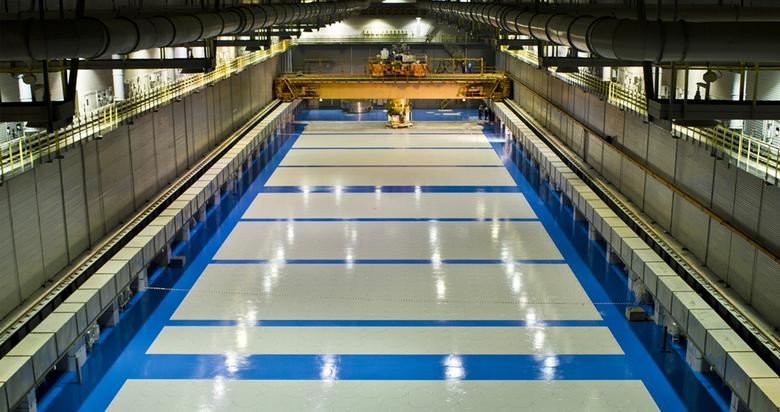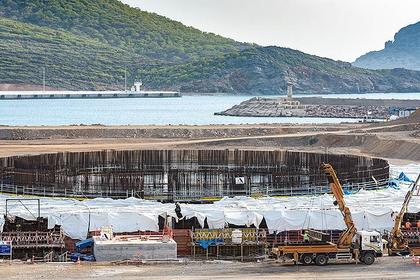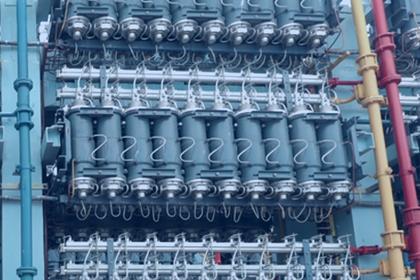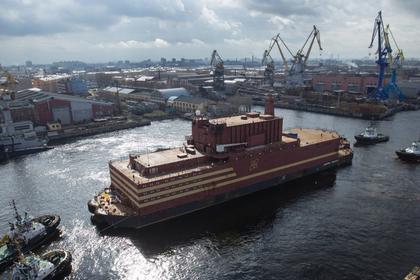
RUSSIA'S NUCLEAR FUEL STRATEGY

IAEA - A one-stop-shop for spent fuel management is one way to describe Russia's Mining and Chemical Complex (MCC) near Krasnoyarsk, Siberia. The complex is designed to handle spent fuel at its different stages, all at one site. In many countries, these activities — involving fuel that is no longer useful but still very radioactive — are performed at separate facilities that are, in some cases, up to hundreds of kilometers apart. By taking an integrated approach, Russia's national strategy for spent fuel management aims to improve efficiency, cut costs and optimize safety and security.
"Russia's nuclear power industry is continuing to develop and increase its contribution to the country's overall energy mix. So, we need to make sure that the management of spent nuclear fuel is reliable, sustainable, safe and secure," said Anzhelika Khaperskaya, a senior manager in the Spent Nuclear Fuel Management Project Office of Russia's State Atomic Energy Corporation (Rosatom), and one of the designers of the integrated approach. "The integrated complex will help us cut down on the need to transport nuclear materials or waste and allow us to focus safety and security measures in one place, which is also better from an economic point of view."
About 4000 kilometers east of Moscow, in central Siberia, the repurposing of the MCC under this integrated approach began in 2017. The site's existing personnel and facilities provided the necessary infrastructure to jumpstart the integration.
Previously, Russia had primarily stored its spent fuel and partly processed this fuel at the RT-1 plant at the Mayak Production Association near Ekaterinburg, about 1600 kilometers east of Moscow, in western Siberia.
Unlike the RT-1 plant, which mainly handles reprocessing and has a small pilot fabrication facility, the MCC already has wet and dry spent fuel storage, as well as facilities for reprocessing and fabrication of new fuels for light water and fast reactors, and will eventually have an underground research laboratory for high-level waste disposal. The complex is expected to be fully integrated and operational by 2035.
Simplifying the process
Safety and security measures need to be taken at every step of the management process to protect people and the environment and to minimize the risk of attacks, thefts or misuse of nuclear material.
For example, spent fuel is typically transported several times, starting from where it was used, such as at a nuclear power plant, and then between facilities at different sites for storage, reprocessing, fabrication or disposal. The movement of nuclear material requires additional safety and security measures.
"Throughout the integrated strategy, we have taken steps to eliminate safety and security risks in order to protect people and the environment. One such step has been to bring several management processes, namely wet and dry storing, reprocessing and new fuel fabrication into one MCC site to minimize the transport of nuclear materials," said Petr Gavrilov, Director General of MCC, part of Rosatom.
Finding effective ways to reduce the number of processes was a key step in setting up the new approach. Experts from the MCC, leading industry institutions and the Russian Academy of Sciences worked together to select, test and, in some cases, develop new technologies, equipment and methods that adhere to IAEA safety standards and security guidance and can solve complex scientific and technical challenges.
For instance, the MCC will handle the reprocessing of a new type of uranium– plutonium fuel called REMIX. This fuel has been developed as part of the integrated approach to minimizing spent fuel storage times and reducing the amount of radioactive waste for disposal. Unlike other types of nuclear fuels for light water reactors, REMIX can be recycled at today's nuclear power plants as many as seven times, which means it can provide enough nuclear fuel to cover the entire lifespan of a light water reactor at a power plant.
"We have been developing new and innovative reprocessing, recycling and partitioning technologies, as well as infrastructure related to the nuclear fuel cycle. We are essentially trying to shrink the impact of spent fuel management and support sustainable development in the future by recycling uranium and plutonium multiple times for thermal and fast reactors and reducing the radiotoxicity of radioactive waste," Khaperskaya said.
National strategies
In 2018, nuclear power accounted for 18.4% of the energy production in Russia. Every year, the country produces around 700 tonnes of spent nuclear fuel from its nuclear power plants, research reactors and submarines. With the country's plans to expand its nuclear industry, including the large-scale implementation of fast reactors, the MCC's integrated system is expected to help minimize the impact of that increase.
"The safe handling of spent nuclear fuel is a strategic direction of nuclear power development in Russia. It is necessary to provide safe and cost-effective storage of both lasting and newly-generated spent nuclear fuel for nuclear power needs," Gavrilov said. "The integrated complex will improve the efficiency and competitiveness of the Russian nuclear industry and make nuclear energy even safer and more environmentally friendly."
Russia's integrated approach is just one example of how a country can manage its spent nuclear fuel. All countries with nuclear power programmes have national spent fuel management policies and strategies.
A national strategy is tailored to the size and needs of a country's nuclear programme, ensuring it fits into the country's overall energy plan. While each strategy is different, most address the technical, political, socioeconomic, and safety and security aspects of the different steps of spent fuel management, ensuring adherence to IAEA safety standards and security guidance.
Although countries are responsible for the safe and secure management of their spent nuclear fuel, the IAEA provides technical guidance and assists countries in exchanging information to develop well-informed strategies. It also provides expertise and training support for implementing these strategies. As spent nuclear fuel is a form of nuclear material, IAEA safeguards also play a key role in ensuring spent fuel is not misused or diverted from peaceful uses.
----
Earlier:









